Has anyone converted from steam heat to forced air?
sksgrad
18 years ago
Featured Answer
Comments (38)
housekeeping
18 years agolast modified: 9 years agoscryn
18 years agolast modified: 9 years agoRelated Professionals
Highland Park Kitchen & Bathroom Designers · Lenexa Kitchen & Bathroom Designers · Peru Kitchen & Bathroom Designers · Beaverton Kitchen & Bathroom Remodelers · Folsom Kitchen & Bathroom Remodelers · Honolulu Kitchen & Bathroom Remodelers · Omaha Kitchen & Bathroom Remodelers · Panama City Kitchen & Bathroom Remodelers · Pasadena Kitchen & Bathroom Remodelers · Port Angeles Kitchen & Bathroom Remodelers · Central Islip Architects & Building Designers · Daly City Architects & Building Designers · Providence Architects & Building Designers · South Lake Tahoe Architects & Building Designers · Bell Gardens Architects & Building Designersbeds
18 years agolast modified: 9 years agoGreenDogThree
18 years agolast modified: 9 years agobeds
18 years agolast modified: 9 years agokframe19
18 years agolast modified: 9 years agoJefferyD
18 years agolast modified: 9 years agoBlooangl
18 years agolast modified: 9 years agomwkbear
18 years agolast modified: 9 years agomsrodrig_comcast_net
18 years agolast modified: 9 years agocream_please
18 years agolast modified: 9 years agonaturelle
18 years agolast modified: 9 years agosksgrad
18 years agolast modified: 9 years agolesliew
18 years agolast modified: 9 years agosmam60_earthlink_net
16 years agolast modified: 9 years agomarkjames
16 years agolast modified: 9 years agomike_73
16 years agolast modified: 9 years agomightyanvil
16 years agolast modified: 9 years agoChristopher Nelson Wallcovering and Painting
16 years agolast modified: 9 years agohatman52
16 years agolast modified: 9 years agomightyanvil
16 years agolast modified: 9 years agomightyanvil
16 years agolast modified: 9 years agomarkjames
16 years agolast modified: 9 years agohatman52
16 years agolast modified: 9 years agomightyanvil
16 years agolast modified: 9 years agoChristopher Nelson Wallcovering and Painting
16 years agolast modified: 9 years agomightyanvil
16 years agolast modified: 9 years agoChristopher Nelson Wallcovering and Painting
16 years agolast modified: 9 years agokframe19
16 years agolast modified: 9 years agomightyanvil
16 years agolast modified: 9 years agomightyanvil
16 years agolast modified: 9 years agomarkjames
16 years agolast modified: 9 years agokatalase
16 years agolast modified: 9 years agomsuno1
15 years agolast modified: 9 years agoJoshCT
13 years agolast modified: 9 years agoPenny Peer
last yearPenny Peer
last year
Related Stories
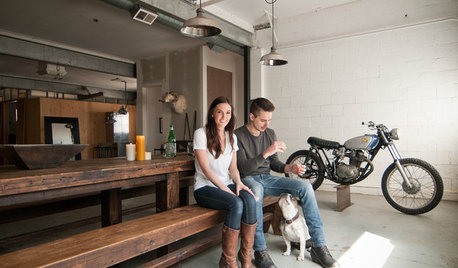
INDUSTRIAL STYLEMy Houzz: From Raw Space to Hip Home in a Converted Utah Garage
Creative repurposing with an industrial edge defines the first home of an engaged couple in Salt Lake City
Full Story
HOME OFFICESThe Cure for Houzz Envy: Home Office Touches Anyone Can Do
Borrow these modest design moves to make your workspace more inviting, organized and personal
Full Story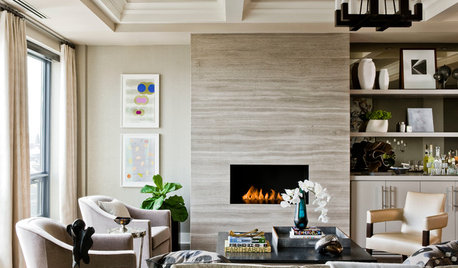
LIVING ROOMSHow to Convert Your Wood-Burning Fireplace
Learn about inserts and other options for switching your fireplace from wood to gas or electric
Full Story
REMODELING GUIDESOne Guy Found a $175,000 Comic in His Wall. What Has Your Home Hidden?
Have you found a treasure, large or small, when remodeling your house? We want to see it!
Full Story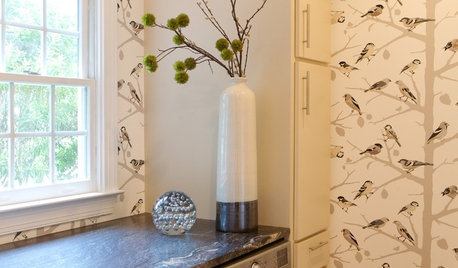
LAUNDRY ROOMSThe Cure for Houzz Envy: Laundry Room Touches Anyone Can Do
Make fluffing and folding more enjoyable by borrowing these ideas from beautifully designed laundry rooms
Full Story
Houzz Gifts: 31 Finds for the Chef Who Has Everything
Delight serious cooks with the latest in kitchen gadgets, accessories, cookware and small appliances from Houzz
Full Story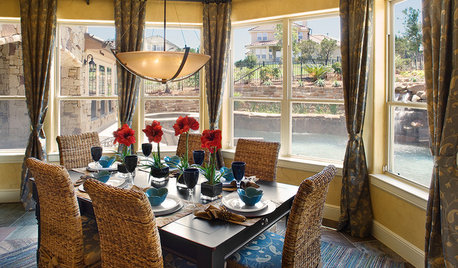
HOUSEPLANTSHow to Force Amaryllis Bulbs Indoors
Enjoy vibrant red blossoms even as gardens turn snowy white, by teaching this hardy repeat performer to ignore the calendar
Full Story
LIFEHouzz Call: What Has Mom Taught You About Making a Home?
Whether your mother taught you to cook and clean or how to order takeout and let messes be, we'd like to hear about it
Full Story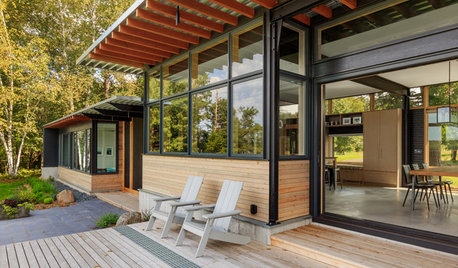
LIFE6 Ways to Cool Off Without Air Conditioning
These methods can reduce temperatures in the home and save on energy bills
Full Story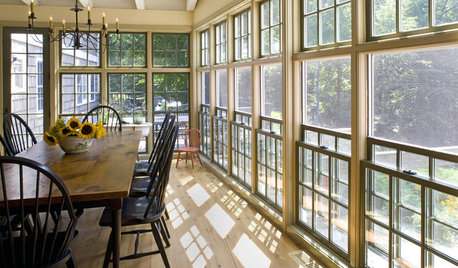
HOUSEKEEPINGLower Your Heating Bills With Some Simple Weather Stripping
Plug the holes in your house this winter to make sure cold air stays where it belongs: outside
Full Story






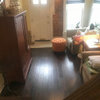

zeebee